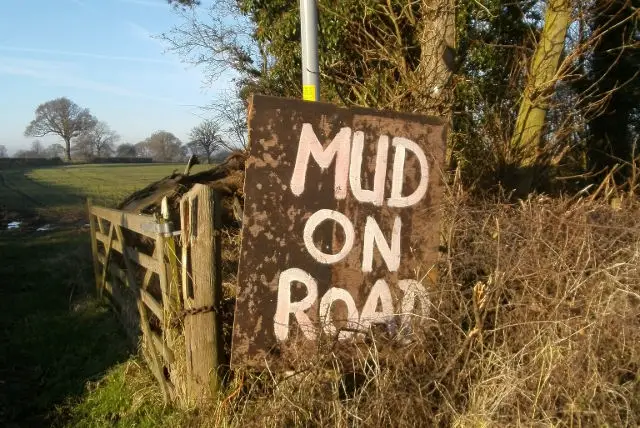In recent weeks, the 25 year PFI contractor, Island Roads, have had to close roads in order to clear excessive mud from the carriageway.
The road closures have resulted in disruption to commuters on busy routes and questions have been raised as to who is paying for the specialist road clearance.
Clearance is within the PFI
OnTheWight asked the Isle of Wight council who would be covering the cost and whether they plan to pursue anyone for it.
Island Roads replied, confirming that removing mud from the road is included in the PFI contract. However, they can recover their costs from the relevant landowners.
Island Roads: “Will consider pursuing landowners for costs”
A spokesperson for Island Roads said:
“Island Roads undertake network management and street cleansing operations on behalf of the council through the PFI contract and this includes removing mud from the road. We have the powers under the Highways Act to recover our costs from the relevant landowners.
“At the present time, we are seeking to work with community bodies to ensure landowners are aware of their responsibilities. We will consider pursuing landowners for costs if we are not satisfied that this approach has worked and if landowners continue to disregard these responsibilities.”
NFU: “Farmers and growers should clean the road”
An NFU South East spokeswoman told OnTheWight,
“Besides being illegal, excessive mud on the roads can lead to serious and even fatal accidents and so it is essential that farmers and growers take steps to minimise its impact. The same is true for other materials deposited on the road – even spiIt grain can be an issue.
“Farmers and growers should clean the road as necessary and as soon as it is practicably possible during and after farming operations have taken place. The NFU advises its members to ensure that they have adequate labour and suitable equipment to do this. Where a farmer uses a contractor for a task, the NFU advises that farmers make prior agreements on the areas of responsibility.”
The NFU advice to farmers is:
- Do everything possible to prevent mud being deposited on the road. This includes cleaning mud from vehicles, as far as practicable, before they are taken onto the road.
- If there is a danger of mud being accidently deposited on roads, use ‘Slippery Road’ signs with a ‘Mud on Road’ sub plate to alert other road users. Check your local highways authority’s requirements for warning signs at the side of the road.
- Clean the road as necessary during the working day and always at the end of the working day.
- Ensure that labour and equipment is available and is suitable for the soil and weather conditions present.
- Motorists are asked to drive with caution when they see hazard warning signs.
CLA: Responsibility of farmers and landowners
Robin Edwards, Country Land and Business Association (CLA) South East Regional Director told OnTheWight,
“Consideration for other road users can have a tremendous effect on farmers’ relationships with their local community, as well as the general public. It is the responsibility of landowners and farmers to do everything possible to prevent mud being deposited on the road.
“This includes cleaning mud from vehicles, as far as practicable, before they are taken onto the highway, cleaning the road as necessary and using appropriate warning signs.”
Image: eamoncurry under CC BY 2.0





